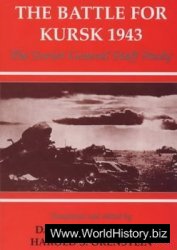The decision to invade Afghanistan was made by the head of the Communist Party, general secretary Brezhnev, and a four-person subcommittee of the fifteen-member Politburo. The Politburo's job, in theory, was to manage the affairs of the Central Committee comprised of national and regional party leaders. The head of state and Politburo member, Aleksei Kosygin, was notably absent when the final decision was made. The Soviet government, as such, did not participate in the decision. Only after the invasion did state agencies swing into action, such as negotiating the terms of the treaty for stationing troops, or the foreign ministry's presentation of the Soviet case to foreign governments and to the United Nations.
That the decision was made by Brezhnev and his Politburo colleagues is not surprising. Article Six of the 1977 USSR Constitution states that "the leading and guiding force of the Soviet society and the nucleus of its political system, of all state and public organizations, is the Communist Party of the Soviet Union. The Communist Party, armed with Marxism-Leninism, determines the general perspectives of the development of society and the course of the home and foreign policy of the USSR, directs the great constructive work of the Soviet people, and imparts a planned, systematic and theoretically substantiated character to their struggle for the victory of communism.”6
The constitution does not define how or who in the Communist Party makes decisions about war and peace, but, since the days of Lenin, they were to be made by the Politburo.
The Central Committee was officially informed (briefed) by the Politburo subcommittee four days after the invasion had taken place (December 31) in a report entitled "About the events in Afghanistan on December 27-28.” The Politburo had instructed its Afghanistan committee to bring decisions to the Central Committee "on a timely basis.” In this case, "timely” meant after the fact. The Politburo report notably did not ask the Central Committee for approval of its actions; it was simply a briefing memorandum designed to give Central Committee members appropriate talking points.
The talking points were that the Amin government had brought Afghanistan to a state of crisis. It had removed those who had created the April revolution ("murdering six hundred party members without court approval”). The Amin government had turned to a "more balanced foreign policy,” which included confidential meetings with American agents. The Amin government had tried "to simplify its position by compromising with the leaders of internal counterrevolutionary forces,” including leaders of the "extreme Muslim opposition.” A key talking point was that a reluctant Soviet Union had been invited by an opposition that had united against Amin to "save the fatherland and the revolution” and had complied by sending a "limited contingent of troops.” These troops would withdraw once the April revolution had been saved. In fact, "the wide public masses of Afghanistan welcomed the overthrow of the Amin regime with unconcealed joy and are prepared to support the declared program of the new government.”




 World History
World History









